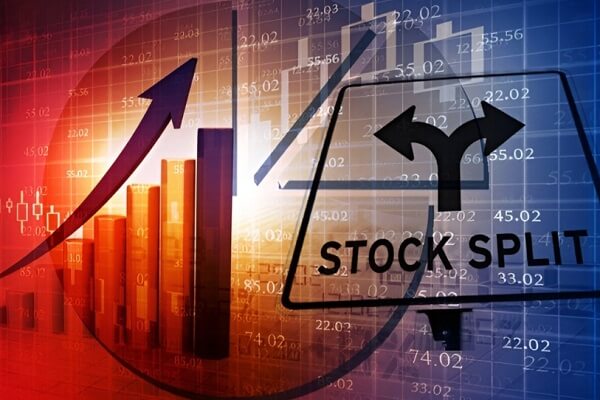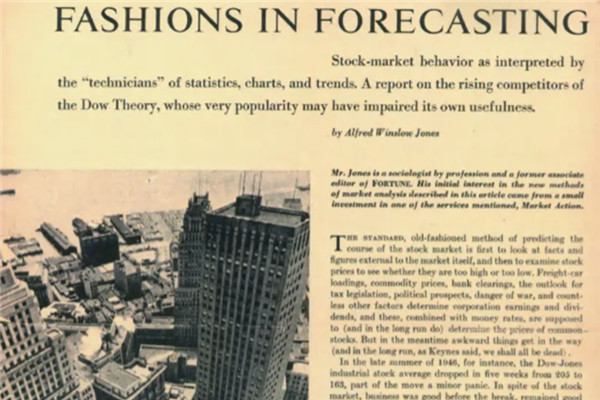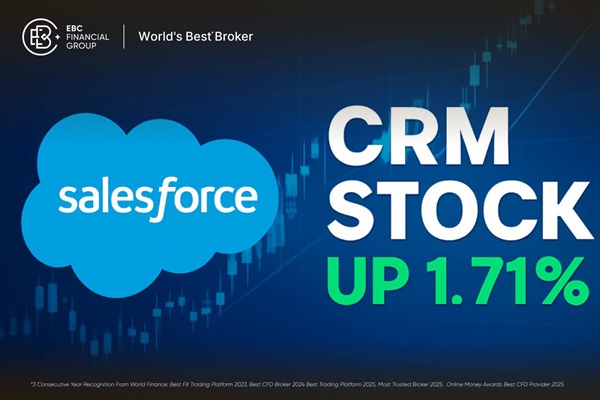In China, there exists a class of magical characters called Amazons who are capable of rubbing mahjong in literature and blowing hooligans in martial arts. Sometimes in the vegetable market, bargaining Turn and may be in the stock market hundreds of thousands of ups and downs. And this often hundreds of thousands of ups and downs in the stock market cannot be separated from the stock market.

What does a stock market do?
It is a product of the development of the Securities market to a certain stage, to provide people with securities trading venues and facilities, and to organize and supervise trading behavior.
In 1602. the Dutch set up the East India Company in order to colonize foreign countries and plunder resources. This was the first joint-stock company in the world. One day, a shareholder of the company was in urgent need of money and tried to sell some of his shares to get quick cash; thus, the first share trading took place. Later, more and more people began to follow suit. In order to standardize the market and facilitate buyers and sellers, the Dutch government specifically simplified the procedures of stock transfer and established the world's first stock market.
In 1990. China's Shanghai and Shenzhen stock exchanges were opened in November and December, respectively. At the beginning of its establishment, only eight stocks were listed for trading in Shanghai, which is also known as the legendary old eight stocks. After more than twenty years of development, the total number of companies listed in Shanghai and Shenzhen has reached nearly 3.000. The trading varieties have also increased, from simple stocks and bonds to new funds and warrants.
The original intention of the establishment of the exchanges was to guarantee fair and centralized trading. In the early days, information was not transparent, allowing only a few people to trade through insiders. And now stockholders have access to all kinds of information everywhere, and the market is regulated by law. It brings together national trading information to unify and summarize buyers and sellers, maximizing the principle of fair trading.
It is generally categorized into two types: membership and corporate. China's Shanghai and Shenzhen markets belong to the membership system. These exchanges are more like clubs set up by brokerage firms on their own initiative. Since members can also participate in stock trading, the mechanism itself has some potential for injustice.
On the other hand, many well-known exchanges abroad, such as the New York Stock Exchange, belong to the company system, and these exchanges are purely for the brokerage firms to provide trading venues and services. The company stipulates that operators are not allowed to participate in the correct buying and selling, thus ensuring the fairness of the transaction to a certain extent.
Stock exchange ranking
| Ranking |
Stock Exchange |
District |
| 1 |
New York (NYSE) |
America |
| 2 |
Nasdaq exchange |
America |
| 3 |
Tokyo (TSE) |
Japan |
| 4 |
Shanghai (SSE) |
China |
| 5 |
Hong Kong Stock Exchange (HKEX) |
Hong Kong |
| 6 |
London (LSE) |
English |
| 7 |
Frankfurt Exchange |
Germany |
| 8 |
Toronto (TSX) |
Canada |
| 9 |
Mumbai (BSE) |
India |
| 10 |
Sydney (ASX) |
Australia |
Function of the stock market.
It provides guarantees for centralized trading, publishes timely quotations for securities trading, and produces market quotation tables to be published according to the trading day. Without its authorization, no unit or individual is allowed to publish timely quotations for securities trading.
It has the right to handle the suspension, resumption, or termination of the listing of stocks and bonds in accordance with national laws and administrative regulations and the provisions of the securities regulatory authorities under the State Council.
When the normal conduct of securities trading is affected by a sudden event, it may take the form of a technical suspension of trading. If it is due to a force majeure sudden event or in order to maintain the normal order of securities trading, it may decide to temporarily suspend the affairs. Regardless of whether it is a technical suspension or a temporary suspension, it must promptly report to the securities regulatory authority under the State Council.
It carries out real-time monitoring of securities trading and should report on abnormal trading situations in accordance with the requirements of the securities regulatory authorities under the State Council. It shall supervise the disclosure of information by listed companies and relevant information disclosure obligors and urge them to disclose information accurately and timely in accordance with the law.
It should set up a risk fund by withdrawing a certain percentage of the trading fees, membership fees, and seat fees. The risk fund shall be managed by the board of directors of the exchange. It shall set up a special account in the bank of deposit for the withdrawn risk fund and shall not use it without authorization.
It shall formulate listing rules, trading rules, member management rules, and other corresponding rules in accordance with securities laws and administrative regulations and report them to the securities regulatory authority under the State Council for approval.
Characteristics of a stock market
First, it provides a centralized market place where buyers and sellers can trade stocks, bonds, and other financial assets in the same location. This centralized market facilitates market transparency and liquidity, attracts a large number of efficient traders and investors, and makes trading easier. And it provides market data, including information on Stock Prices, turnover, and depth of trading, for use by investors, traders, and analysts to help market participants make decisions.
Second, a series of trading rules and systems have been developed to ensure the fair, orderly, and standardized operation of the market. This includes rules on trading hours, price setting, trading mechanisms, etc. And it is subject to the supervision of the government or financial regulators to ensure the compliance of the market. And they are responsible for monitoring transactions in the market to prevent cajoling and misconduct.
They are then qualified to regulate listed companies and set out the requirements and criteria for listing. Also, you can decide to withdraw certain companies from listing on the exchange. Different trading methods are supported, including auction-style trading, electronic trading, and hybrid trading systems. They can be international or domestic. Operate in a specific country or region and are subject to local regulations.
Finally, it also facilitates corporate finance. Provides a platform for companies to sell their shares to the public, which promotes investment and economic growth.
Stock exchange trading hours
| Trading Post |
District |
Trading Hours |
Trading Duration |
| New York (NYSE) |
America |
9:30-16:00 |
6.5h |
| Nasdaq exchange |
America |
9:30-16:00 |
6.5h |
| Tokyo (TSE) |
Japan |
9:00-11:30 12:30-15:00 |
5h |
| Shanghai (SSE) |
China |
9:15-11:30 13:00-15:00 |
4.25h |
| Hong Kong Stock Exchange (HKEX) |
Hong Kong |
9:30- -12:00 13:00- 16:00 |
5.5h |
| London (LSE) |
English |
8:00- 16:30 |
8.5h |
| Frankfurt Exchange |
Germany |
9:00- -17:30 |
8.5h |
| Toronto (TSX) |
Canada |
9:30-16:00 |
6.5h |
| Mumbai (BSE) |
India |
9:15-15:30 |
4.25h |
| Sydney (ASX) |
Australia |
10:00-16:00 |
6h |
| Pan-european (Euronext) |
France |
9:00-17:30 |
8.5h |
| Singapore Stock Exchange |
Singapore |
9:00-17:00 |
8h |
| South Korea (SGX) |
Korea |
9:00-15:30 |
6.5h |
| Australia (KRX) |
Australia |
10:00-16:00 |
6h |
| Taiwan (TWSE) |
China |
9:00-13:30 9:30-11:30 |
4.5h |
| Shanghai and Shenzhen (SSE & SZSE) |
China |
13:00-15:00 |
4h |
The organizational form of the stock exchange
Regulatory bodies are regulated by national or regional regulatory bodies. These regulators are responsible for ensuring that the market is fair and transparent and protecting the rights of investors. Regulators usually establish rules and regulations to govern the operation of the exchange and market behavior.
Board of Directors and Management: Comprised of a board of directors and management responsible for setting policy, managing day-to-day operations, and overseeing the market. The board of directors typically includes members representing market members, market participants, and the public.
Market Participants: These include brokers, traders, investors, and issuing companies. They execute buy and sell transactions on the market, contributing to market liquidity and price discovery.
Listed Company: A company that is listed on an exchange and issues shares or bonds to the public. Subject to the rules and regulations of the exchange to maintain market transparency and compliance.
Markets Department: Markets departments are usually responsible for overseeing the operation of the market and ensuring that the market operates fairly and efficiently. They may handle duties such as market regulation, market data dissemination, trading system maintenance, and marketing.
Clearing and Settlement Organizations: Clearing and settlement organizations handle the clearing and settlement of trades to ensure that buyers and sellers meet their trading obligations. These organizations usually work closely with the market to ensure that transactions are conducted safely and efficiently.
Market Data Providers: Market data providers are usually responsible for providing market data, quote information, and trade data for use by investors and brokers. This contributes to market transparency and information flow.
Trading Systems: Having sophisticated electronic trading systems to support high-speed and efficient trading These systems allow market participants to buy and sell stocks, bonds, and other financial assets in the market.
Differences with a Securities Company
Different in nature: Stock market is a trading platform or marketplace that provides a trading venue for securities and allows buyers and sellers to trade stocks, bonds, and other financial assets in that marketplace. They are public institutions or non-profit organizational organizations that facilitate the trading of securities by providing a transparent, community-based, and regulated marketplace.
Securities companies (securities firms or brokerage firms) are financial institutions, usually securities firms, that engage in securities trading, investment advisory, asset management, and a variety of financial services related to the securities market. Securities companies deal with stock trading, investment banking, asset management, etc., and provide financial products and services to their clients.
Different positions: the main function of stock market is to provide markets and infrastructure to facilitate the buying and selling of securities. They set trading rules, provide market data, ensure market transparency, and monitor compliance with market transactions. The functions of securities firms cover all aspects of securities trading. They act as institutions that help investors execute trades, provide investment advice, manage client assets, conduct market research, participate in stock offerings and issuances, etc.
Different roles: Exchanges are the organizers and managers of the market, and their main task is to provide venues and rules for securities trading in order to ensure the effective functioning of the market. Securities firms are participants in the market; they trade in the market on behalf of their clients and provide financial services to meet their investment needs.
Regulation is different: Stock market need to be regulated by the government or financial regulators to ensure the fair, transparent, and fair operation of the market. Securities firms are also regulated, but the scope of regulation and requirements vary by country and region. Securities firms are usually regulated by financial regulators to ensure that their business activities are compliant and to protect the interests of their clients.
Difference between a stock exchange and an investment bank
| Aspect |
Stock Exchange |
Investment Bank |
| nature |
marketplace |
Financial institution |
| function |
Facilitate financial transactions |
Providing capital markets services |
| profit |
Transaction fees, sales of market data |
Consulting fees, handling fees, underwriting fees |
| participant |
Investors, brokers, etc |
Companies, government agencies, etc |
| supervise |
Financial market regulators |
Financial regulator |
| Risk |
No risk |
Take some risk |
| service |
Provide trading infrastructure |
Financing, securities issuance |
| Events |
Price discovery |
Mergers and acquisitions, capital raising |
Disclaimer: This material is for general information purposes only and is not intended as (and should not be considered to be) financial, investment, or other advice on which reliance should be placed. No opinion given in the material constitutes a recommendation by EBC or the author that any particular investment, security, transaction, or investment strategy is suitable for any specific person.



























